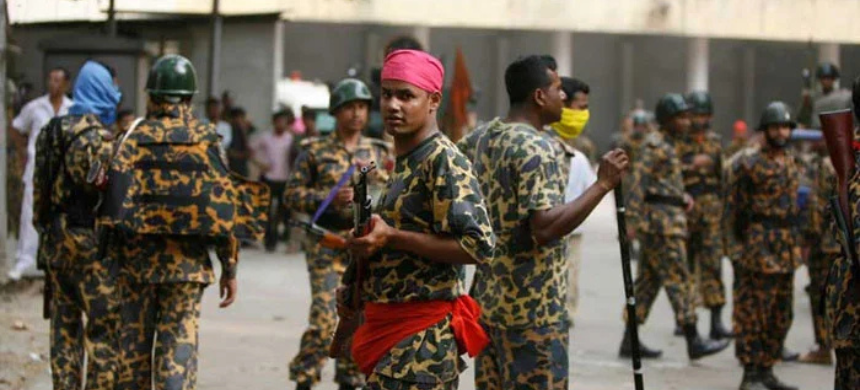Bangladesh Releases 178 Former Paramilitary Personnel After 16-Year Imprisonment
The interim government of Bangladesh released 178 former paramilitary personnel on January 23, marking the end of a 16-year ordeal tied to allegations of involvement in the 2009 mutiny.
The mutiny, a two-day violent rebellion under the former prime minister Sheikh Hasina’s administration, targeted senior officers of the Bangladesh Rifles (BDR). It resulted in widespread arrests and trials, with initial court rulings sentencing over 150 individuals to death. Rights organizations heavily criticized the judicial process, citing procedural lapses and concerns over fairness.
According to Deutsche Welle (DW), “These personnel were imprisoned for their alleged roles in the mutiny, which led to the arrests of thousands.” Although the released individuals were acquitted of murder charges, their cases remained pending for over a decade, raising questions about the disregard for human rights under Hasina’s tenure.
Read More: Arrest Warrant Issued for Bangladeshi Cricket Legend
For families of the released prisoners, the moment was one of mixed emotions. Abdul Qasim, a 38-year-old former detainee, expressed relief, stating, “I cannot describe my feelings in words. I am finally going back to my family.”
Similarly, Shiuli Akhter, the wife of another released man, shared her disbelief. “This feels like a dream. If Sheikh Hasina had been in power, my husband would never have come out of prison,” she said. Akhter criticized the previous government, asserting that her husband, who had just joined the BDR at the time of the mutiny, was wrongfully imprisoned.
The 2009 mutiny was reportedly fueled by long-standing frustrations among lower-ranking troops over low wages and poor working conditions. Despite numerous appeals, their grievances went unaddressed. Critics of Hasina have even alleged that the mutiny may have been orchestrated to weaken the military and consolidate her authority.
Following Hasina’s departure after her 15-year rule, the interim government has taken steps to address lingering grievances. Last month, it reopened investigations into the mutiny at the behest of families of soldiers who were killed.
This development not only signals a potential shift in governance but also serves as a reminder of the critical need for justice and accountability in addressing the aftermath of such significant national events.











